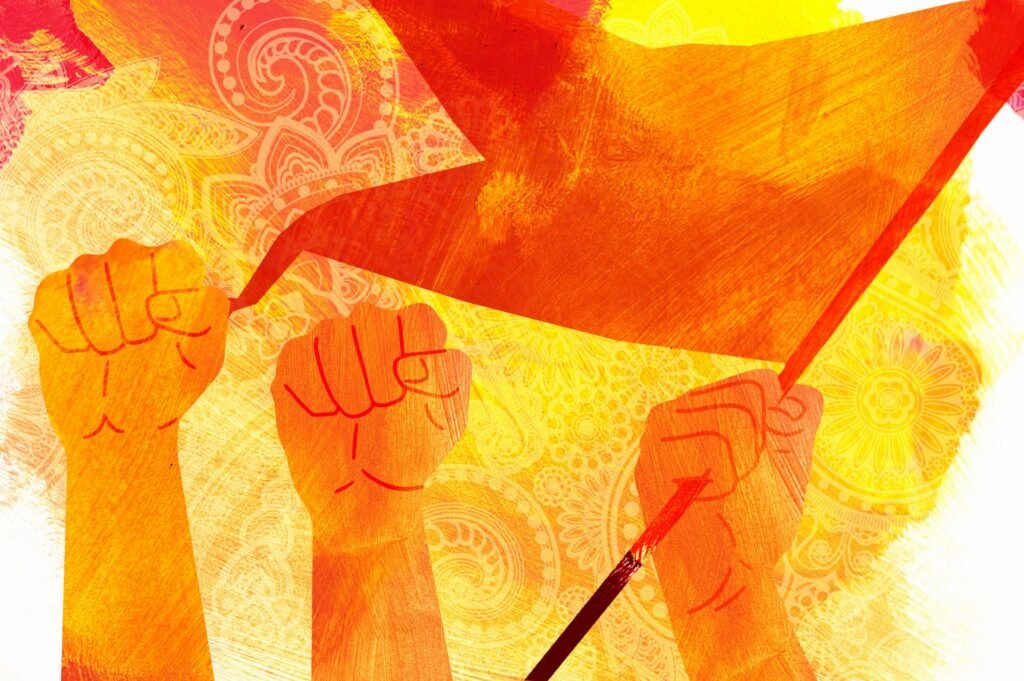
The Indian national conservative voice was heard loud and clear in the National Conservatism Conference, held in Washington DC on 8-10 July, 2024, with the participation of conservative intellectuals of other nations. Conservatism has a much-used suffix i.e., -ism attached to it. This suffix becomes powerful when it is affixed to an idea viz. Communism, Marxism, Secularism etc. Hence, Conservatism as an ideal is as robust as any other or more. Indians are born conservative in social, political and economic terms. In a deeply religious society of Bharat, children grow-up at home with values and a culture that are taught in their religion. Like freedom of speech, freedom of religion is also enshrined in the Indian Constitution. Religious worships and practices give intrinsic solace to a person. Yet, outside the family home, they mingle with all harmoniously. Their cultural values are taught for public good.
Hindus are the tradition of the overwhelming majority of Indians. Hinduism is free from the strange obsessions that a particular religious practice is necessary to avoid falling into mortal sinfulness. As Dr. S. Radhakrishnan stated, Hinduism has the comprehensive unity of a living organism with a fixed orientation. In the political sphere, since independence and self-rule, secularists have tried to brainwash Hindus that they should give up religion and concentrate purely on worldly affairs. However most people did not pay heed to the propaganda, as they are deeply attuned to their spiritual needs. The same secularists argued with Gandhi ji, saying that there is a lot of trash in religion. Gandhi ji countered them by saying that there is a lot of trash outside religion as well. He asked them: why blame religion alone for all ills? Coming to conservatism, it promotes traditional wisdom and values. Apart from that, conservatives care about society, family, religion and culture, nation and nationalism. In the economic domain, Indians are conservative in spending money i.e. more interested in saving, although, many political conservatives advocate a free-market economy.
Need to protect traditional values/heritage:
Culture and tradition have some interconnection. The culture of a nation includes the philosophy, literature, art and music that it has produced through the ages. Conservatives see to their survival and promotion. The good traditions of society should be understood, or at least be handed down dutifully to the next generation. In due course, that preserved tradition will help intellectuals of present and future generations, to analyse and understand its meaning and make use of it fruitfully. If the tradition is discouraged and dropped, it will gradually be forgotten. Gandhi ji in his book Hind Swaraj writes, ‘The civilization and tradition that have evolved over centuries in this country are not to be beaten. They have been tested and found true on the anvil of experience; Indians dare not change it. Nothing equals to the seeds sown by our ancestors,’. In fact, that is one of the principles of conservative thought. Indians carried forward their rich traditional knowledge enunciated in Vedas, Puranas and Epics from generation to generation orally for many centuries, before there were written scripts. Roger Scruton in his book (published in 2014): ‘How to Be a Conservative’ points out that the starting point of conservatism is the sentiment that ‘good things are easily destroyed, but not easily created’. T.S. Eliot in his Four Quartets defines how to go about preserving tradition. Eliot says, ‘We must be modern in defence of the past, and creative in defence of tradition.’
Most conservatives follow the eighteenth-century philosopher Edmund Burke, who made the case for a society shaped from below, by traditions that have grown from our natural need to associate’, rather than from above. This is a bottom-up approach. With this thought the liberals differ. The liberals always are in a haste and try to seek top-down legislations to bring change in the society. They think change in the society from below is too slow a process. On the other hand, conservative hold that change, if any, has to happen from within the society, although the process is gradual and takes time, rather than through legislation. The Liberal outlook is more widely shared among the formally educated sections than among the masses. Conservatives however suffer from a disadvantage, when it comes to public opinion. The younger generations rarely feel much enthusiasm about conservative ideas because they are exposed to its negative depiction and official rejection in universities. Nevertheless, conservatism is a culture of affirmation. Burke argued that without the custom and tradition society would disintegrate into the ‘dust and powder of individuality’. Hence, customs and traditions are part of our heritage.
Liberals often disavow the nation-state and national idea. On the contrary, conservatives always emphasize the connection between a nation and its military. Many (Left Wing) liberals are internationalists i.e., they believe in purely administrative nations without borders. Whereas, conservatives look to nations with territories that are determined by their civilisation. Historian Ramchandra Guha in the last chapter of his book ‘Democrats And Dissenters’, lamented – ‘Where are the conservative intellectuals in India?’ Guha writes, ‘While the country has a right-wing party in power, right-wing intellectuals run thinly on the ground. This is a paradox.’ Now, Lo and Behold: there are right-wing intellectuals in the country who are trying to build a global-network of like-minded thinkers. This certainly is the need of the hour.






The world need conservative people than modern because the later are causing more damage to the nature due to their consumerism. When it comes to culture aspects of life, whose cultural values are important? Is it the people brought up with education and deep rooted religious values or the primitive/tribal/rural people who living in remote areas with limited resources and needs…..We need to rethink on who’s traditional/cultural values are important while uniting the conservative people across the globe….